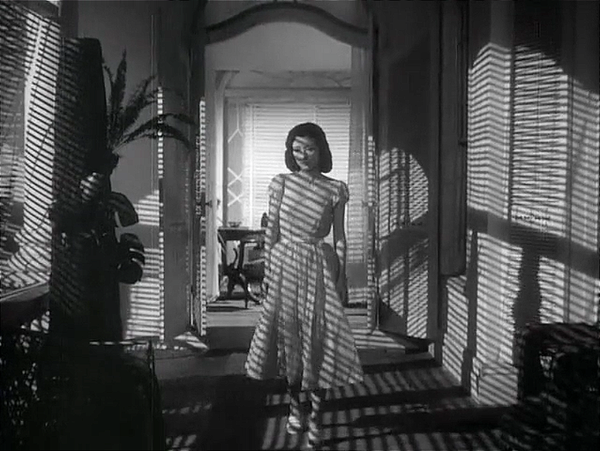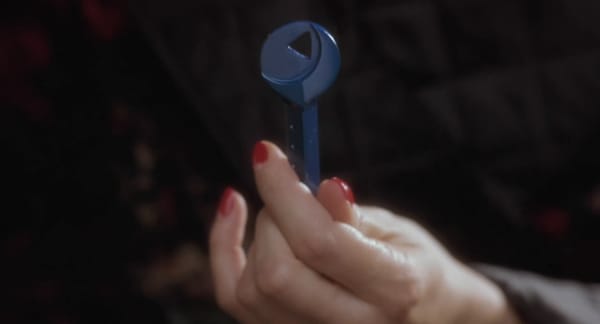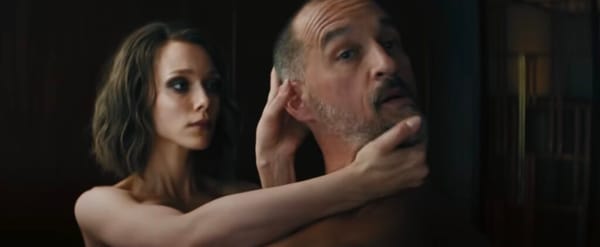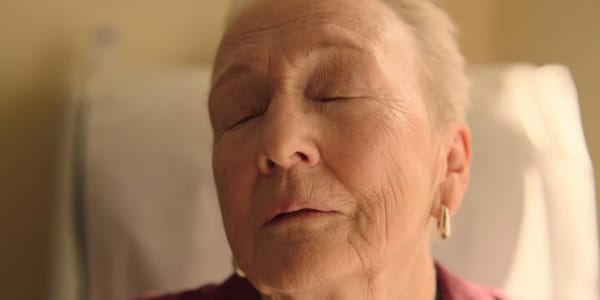Sundance 2023 Report, Part II
The translucent "Past Lives" conquers Park City. Also: "You Hurt My Feelings," A Little Prayer," and "Cat Person"
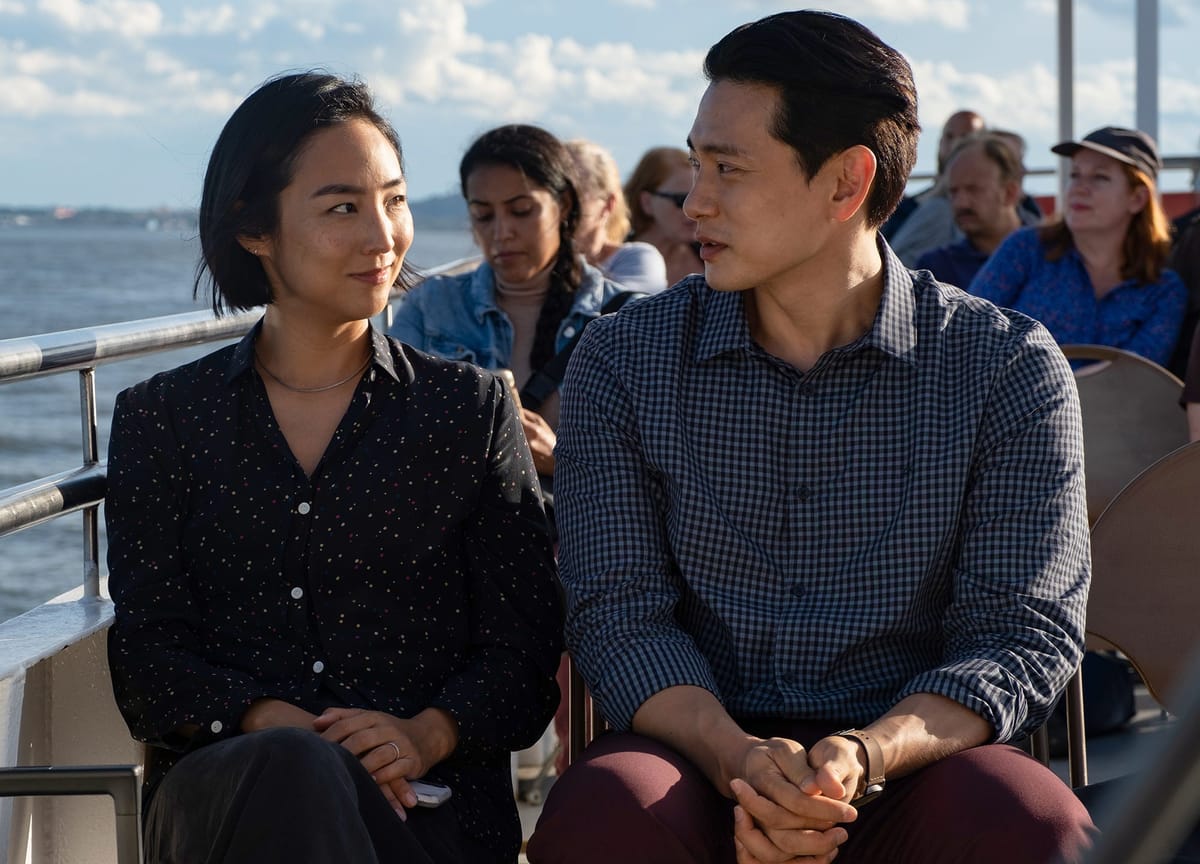
You know a movie is special when you’re sitting in a festival screening surrounded by hardened industry professionals who are all, men and women alike, quietly weeping in the dark. “Past Lives” (⭐ ⭐ ⭐ ⭐), the first film from writer-director Celine Song, isn’t so much the big buzz film of Sundance 2023 as a talisman secretly passed from hand to hand. When you hear people talking about it on the shuttle buses and the waiting lines, they don’t sound excited – they sound thankful.
The plot is so simple it’s barely there. In 1999 Seoul, two 12-year-old South Korean classmates, Na Young (Seung Ah Moon) and Hae Sung (Seung Min Yim), develop a schoolyard crush on each other just as Na Young’s family is set to emigrate to Canada. Twelve years later, Na Young is a struggling New York City playwright named Nora (Greta Lee, above left) who reconnects with Hae Sung (Teo Yoo, above right) over the Internet; they share a Skype friendship that blossoms over the course of several months until Nora gets cold feet and pulls the plug. Twelve years after that, Hae Sung comes to Manhattan on vacation and visits Nora and her novelist husband Arthur (John Magaro).
That’s it, that’s all, yet within that “all” is everything – the roads you didn’t take versus the one you did, the life you’re living versus the many you might have had. The people and the love you could have chosen, although hovering in the background of “Past Lives” is the sense that we’re not doing the choosing at all — that something bigger and just out of sight is at the wheel. The title is taken from a belief in many Asian cultures that your life partner is one with whom you’ve shared previous lives; in Korea, this notion of fate is called In-Yun, and the movie’s characters ponder it at length. Nora explains it to Arthur when they’re first falling for each other at a writer’s retreat; twelve years later, Hae Sung is fresh from a breakup with a longtime girlfriend and wondering whether his In-Yun somehow got misplaced and ended up 7,000 miles away in a foreign city.
“Past Lives” is based on events in the director’s own life, and it has the quiet impact of home truths. The scenes between Nora and Arthur hum with warm, worn domestic comfort; a late-night conversation between the two in bed, lit by the gray half-light of a 2 a.m. city apartment, is one of the film’s emotional hinge points, as Arthur talks of his trust in the strength of what they have and his insecurity that it could go away at any moment. He knows that in the movie of this story, he’d be the villain the audience roots to see left behind. He knows that when Nora talks in her sleep, it’s in Korean, a hint of the Na Young that Hae Sung knows and Arthur never will.
Magaro (“First Cow”) and Yoo (“Decision to Leave”) are both terrific, but this is Greta Lee’s movie. The actress has had a busy career, mostly in TV: She played the network news president on “The Morning Show” and the best friend on “Russian Doll.” As Nora, she exudes a breezy confidence that over the course of the film is eroded by all the what-ifs that Hae Sung represents and that reveal to her – and to Arthur, and to us – the vastness of the unknown over which we skate. “Past Lives” easily manages the trick of being specific and universal at the same time, but it’s such a delicate piece of work that I worry it’ll get drowned out in the world beyond Park City. What gives me hope is the way it has already united the tough Sundance crowd into a grateful, snurfly mass. A critic colleague recalled a dictum from the late Roger Ebert, and that’s as good a place as any to leave this: The best movies that make you cry are not the ones about sadness. They’re the ones about goodness.
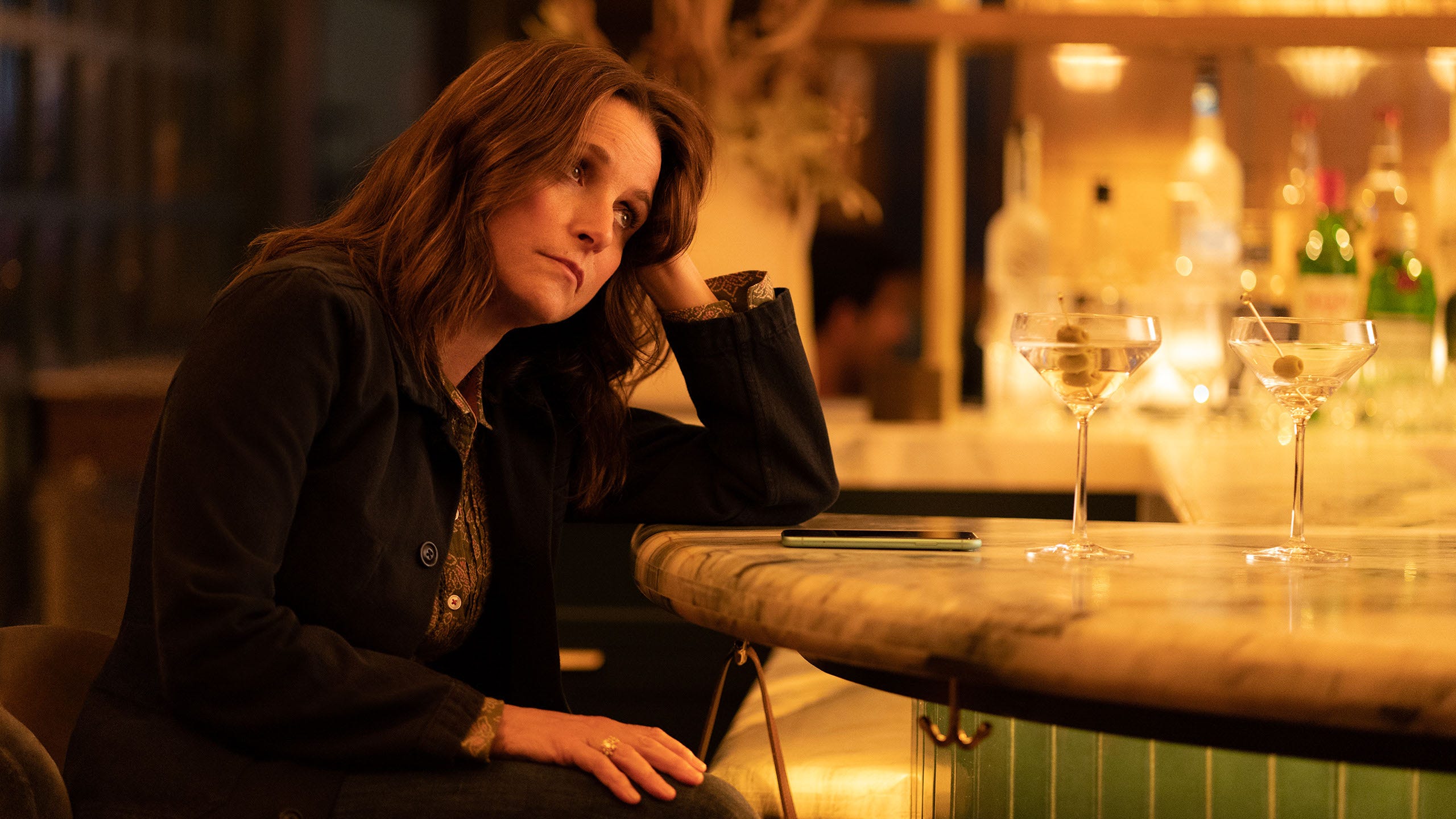
I regret to say that “Past Lives” is not available for rental on the Sundance online platform – A24 will be releasing the film later in the year – and neither is another of my festival favorites, “You Hurt My Feelings” (⭐ ⭐ ⭐ 1/2), a return to gracious, funny form for writer-director Nicole Holofcener (“Lovely And Amazing,” “Friends With Money”) after the qualified misfire of 2018’s “The Land of Steady Habits.” “Feelings” finds Holofcener back in her home turf of upper-middle-class urban discontents, a landscape she portrays with compassion and gently lacerating wit. (She’s heir to Woody Allen’s moral comedies but, honestly, with a better ear for dialogue and a greater curiosity about what makes people tick.) The movie’s about the lies we tell our loved ones to make them feel better and the truths we’re afraid they’re not telling us – about finding the right admixture of blunt honesty and tact to maintain a relationship. Julia Louis-Dreyfus (who’s wonderful) plays a writer whose new novel isn’t coming along well and who overhears her psychiatrist husband (Tobias Menzies, Prince Philip on “The Crown”) tell someone what he really thinks about the manuscript he’s been praising to her face. The husband, meanwhile, is having a midlife career crisis, the writer’s sister (Michaela Watkins) is an interior designer worried that her taste has turned banal, and the sister’s husband (Arian Moayed) is a neurotic actor. Everyone is desperate for reassurance, and nobody trusts it. As the main couple’s grown son (Owen Teague) bitterly complains to his mother at one point, “You set me up to fail — I’m not the brilliant kid you say I am.”
The movie’s one of Holofcener’s best – consistently hilarious but with pointed insights about the ways we delude and console ourselves and each other. And the director knows the tradition she’s working in: When Louis-Dreyfus has a panic attack on a Manhattan street corner and almost pukes in a trash can, moviegoers with long memories may recognize it as the very same spot – and, who knows, maybe the same trash can – where Jill Clayburgh lost her lunch after learning of her husband’s affair in “An Unmarried Woman” (1978). (An A24 title, “You Hurt My Feelings” will be released later this year.)
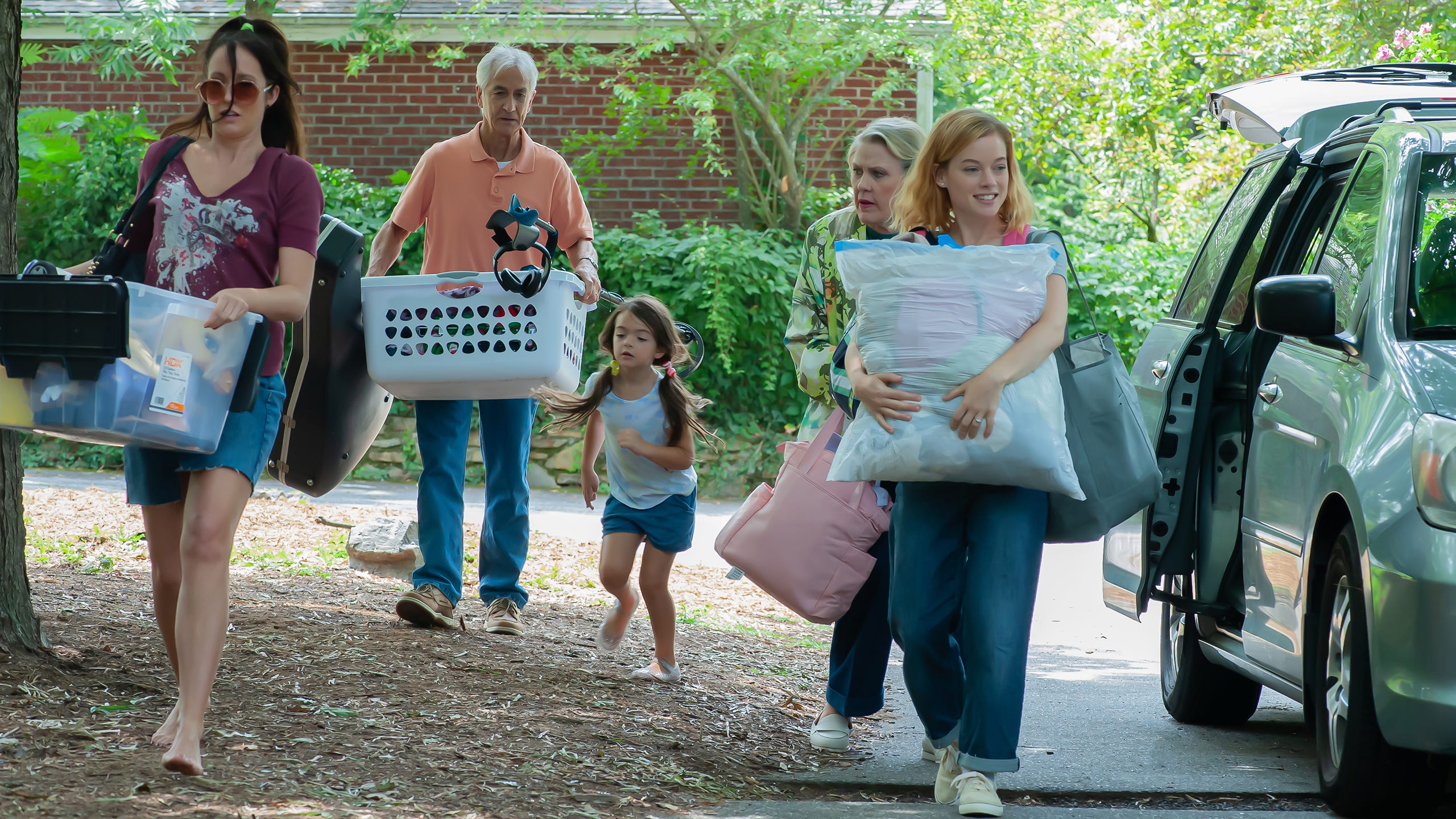
Another Sundance favorite: “A Little Prayer” (⭐ ⭐ ⭐ 1/2), with David Strathairn (above, second from left) in a welcome lead role as a small-town patriarch and Vietnam veteran watching in distress as his family threatens to unravel. The small town is Winston-Salem, NC, and writer-director Angus McLachlan has mined the dramas and manners of the American Southeast in previous work, notably in his screenplay for “Junebug” (2005), which introduced Amy Adams to the world. Straithairn’s character runs a family sheet-metal company with his son (Will Pullen), an Afghanistan War vet who’s cheating on his unsuspecting wife (Jane Levy, above right) with the company secretary (Dascha Polanco from “Orange is the New Black”). The movie gently takes on hot-button issues like abortion and PTSD without making a fuss, and Celia Weston provides great good humor as the family matriarch. At heart, though, this is something quite surprising: A Yasujiro Ozu movie set in North Carolina, with the master’s contemplative perspective on the human comedy and a heartbreaking late-film scene between the hero and his daughter-in-law that could have come straight out of “Tokyo Story.” (Levy may not look like Setsuko Hara, but squint right and Strathairn’s a ringer for Chishu Ryu.) A tough, touching film, and one that deserves to come out of Sundance with a distribution deal.
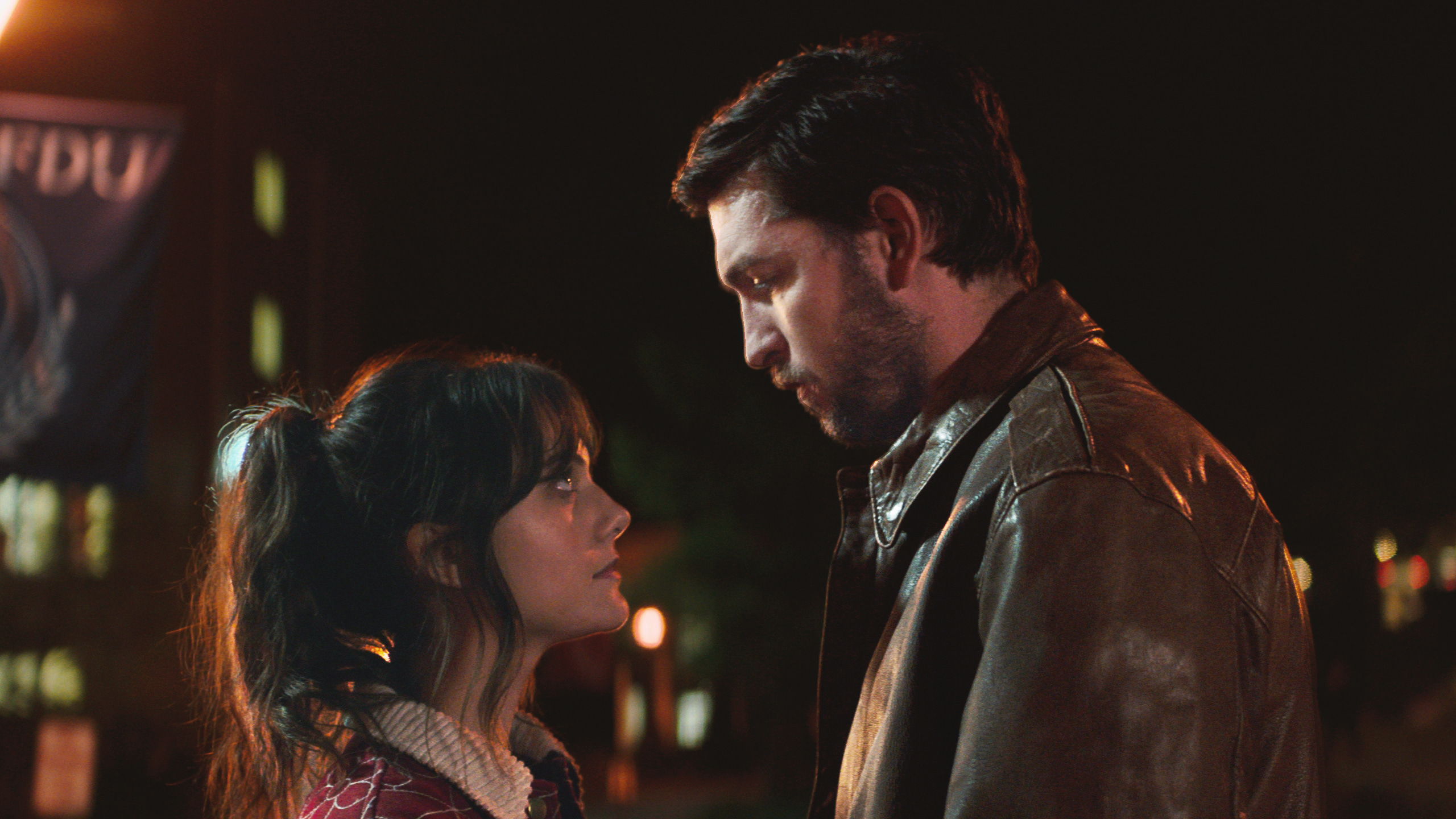
In brief: “Cat Person” (⭐ ⭐) takes Kristen Roupenian’s celebrated/controversial New Yorker short story and does a decent job of adapting it for the first two-thirds, with Emilia Jones (“CODA”) wryly worried as a college student in an ambiguous relationship with an older guy (a tricky Nicholas Braun of “Succession”). The film sketches the perils and paranoia of romance in the social-media age with enough finesse that you may find yourself juggling your sympathies between the two main characters. There’s only one problem: The short story was effectively a two-act proposition, and in coming up with the third act that all movies supposedly need, screenwriter Michelle Ashford and director Susanna Fogel have made the worst possible choice – a climactic turn to violence and fiery disaster that literalizes all the movie’s themes in the name of a Big Finish. I’ve rarely seen a film scuttle itself and sink to the bottom with such determined rapidity.
Look for more reviews before Sundance 2023 winds down next Sunday, including some excellent documentaries (“20 Days in Mariupol,” “Food and Country”) and a handful of cheeky comedies (“Rye Lane,” “Polite Society”).
Thoughts? Don’t hesitate to weigh in.
If you enjoyed this edition of Ty Burr’s Watch List, please feel free to pass it along to friends.
If you’re not a paying subscriber and would like to sign up for additional postings and to join the discussions, here’s how.


